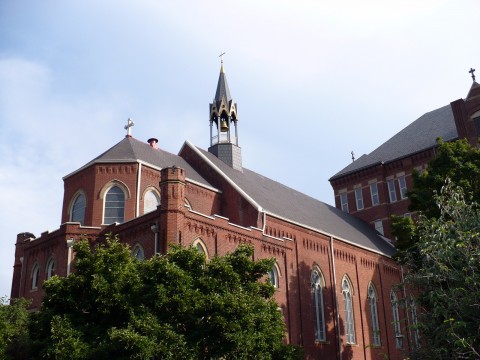The Pittsburgh Post-Gazette ran a sad and galling story yesterday about Mary Margaret Vojtko who died of a heart attack at the age of 83. At the time of her death, Daniel Kovalik writes:
She was receiving radiation therapy for the cancer that had just returned to her, she was living nearly homeless because she could not afford the upkeep on her home, which was literally falling in on itself, and now, she explained, she had received another indignity — a letter from Adult Protective Services telling her that someone had referred her case to them saying that she needed assistance in taking care of herself.
Vojtko had ended up in poverty after spending 25 years working as an adjunct professor of French at Duquesne University, a Catholic school located in Pittsburgh, Pa. Until she was terminated last spring, she worked “on a contract basis from semester to semester, with no job security, no benefits and with a salary of between $3,000 and just over $3,500 per three-credit course.” When teaching three classes a semester and two during the summer, Vojtko never earned more than $25,000 a year. (A pittance compared to the pay package of Duquesne’s president — reportedly about $700,000 per year in salary and benefits.) Meanwhile, Duquesne thwarted attempts by adjuncts to unionize, claiming that the school should have a religious exemption.
As Kovalik goes on to note: “Adjuncts now make up well over 50 percent of the faculty at colleges and universities.” And that statistic is bound to increase. You can — and should — read the full story at the Post-Gazette. Read Death of an Adjunct here.
via @stevesilberman



Nothing can be done about this. Sorry to hear such a painful story. But the wealthy are not in any ‘mood’ to help those who are struggling. Let us eat cake,… shall we? No one of us is in any position to change the views the wealthy have towards the lower class. What can you do to force them to treat others equally? Nothing. What can you do to force them to address the inequity in life and all the struggles the lower classes have? Nothing. Painful story though, amazing person, deep struggles in life, and no relief. This is one of millions of similar stories. The school could of paid her a living wage, and she could of kept her health, and her home, and her dignity, instead she faded out with stress and fear running through her mind. Well educated woman, very business like, she was the pinnacle of hard work. And yet, she still suffered cruelty by unjust pay and compensation for her work. No Union can fix this. No legislation can fix this. No protest can fix this. This problem is the reality of class inequity today. The wealthy, have no tears to she for the pain suffered by others because they live under the guise that what we are paid is fair and equitable.
@Bovee:nn“No Union can fix this. No legislation can fix this. No protest can fix this.“nnnWell, that’s just nonsense. Unionization can make a difference. Legislation can make an even bigger difference. And protests, if big enough, can indeed make a difference. What certainly won’t make a difference is fatalistic hopelessness.
“Academy Fight Song” by Thomas Frank in The Baffler, No. 23. Also, “Course Corrections” in Harper’s October 2013.
I can tell you worse — sort of … In Australia, adjuncts are paid NOTHING AT ALL. My sister spent several years supervising PhD students and continuing to lecture, during which time she received, by way of payment, the glory of being allowed to continue to use the University’s name in her signature file. Oh, and use of the library. And this is the norm. I am sorry indeed for Vojtko, and sincerely; my views on religion and its supporters have been once again confirmed.
This is one of those stories that leave me with so many questions. 1. was she not eligible for social security?n2. was she not eligible for medicare?n3. 83 years old and been teaching for 25 years: what had she been doing the prior 25–30 years?n4. and it really did seem as if she needed some help. Seems to me as if APS was trying to throw her a life line, not insult her.